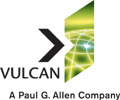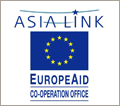
| The World-Wide Web continues to grow and new technologies, modes of interactions, and applications are being developed. Building on this growth, Semantic Web technologies aim at providing a shared semantic information space, changing qualitatively our experiences on the Web. As Semantic Web technologies mature and permeate more and more application areas, new research challenges are coming to the fore and some unsolved ones are becoming more acute. These issues include creating and managing Semantic Web content, making Semantic Web applications robust and scalable, organizing and integrating information from different sources for novel uses, making semantics explicit in order to improve our overall experience with information technologies, and thus enabling us to use the wealth of information that is currently available in digital form for addressing our everyday tasks. To foster the exchange of ideas and collaboration, the International Semantic Web Conference brings together researchers in relevant disciplines such as artificial intelligence, databases, social networks, distributed computing, web engineering, information systems, natural language processing, and human-computer interaction. In addition to this call for papers for the research track, ISWC 2007 will include a Semantic Web In Use track, a poster and demonstration track, a doctoral consortium, and a special competition known as the Semantic Web Challenge. The calls for those tracks can be found on the ISWC 2007 Web site, http://iswc2007.semanticweb.org. The research track of ISWC 2007 solicits the submission of original, principled research papers dealing with both analytical theoretical and practical aspects of Semantic Web research. Topics include, but are not limited to:
Paper submissions must be formatted in the style of the Springer Publications format for Lecture Notes in Computer Science (LNCS). For complete details, see Springer's Author Instructions Papers need to be submitted electronically through the conference submission site. Papers must be submitted in PDF (Adobe's Portable Document Format) format. Papers will not be accepted in any other format. Formatted papers must be no longer than 14 pages. Papers that exceed this limit will be rejected without review. ISWC 2007 will not accept research papers that, at the time of submission, are under review for or have already been published in or accepted for publication in a journal or another conference. Authors of accepted papers will be required to provide semantic annotations for the abstract of their submission for the Semantic Web (help will be provided for this task). Details will be provided on the conference Web page at the time of acceptance. At least one author of each accepted paper must register for the conference. We will also accept a small number of high-quality position papers that take stock in the Semantic Web field today and suggest new directions for the field. Position papers should follow the same formatting guidelines as the research papers, but should be no longer than 8 pages long. They also must have words "Position paper" as part of the title. The submission deadline for position papers is the same as for regular research papers. If you have any questions, please send inquiries to iswc07-research@few.vu.nl Important Dates |
||||||||||||||||||||
 |
Copyright 2007 by Semantic Web Services Lab.

















